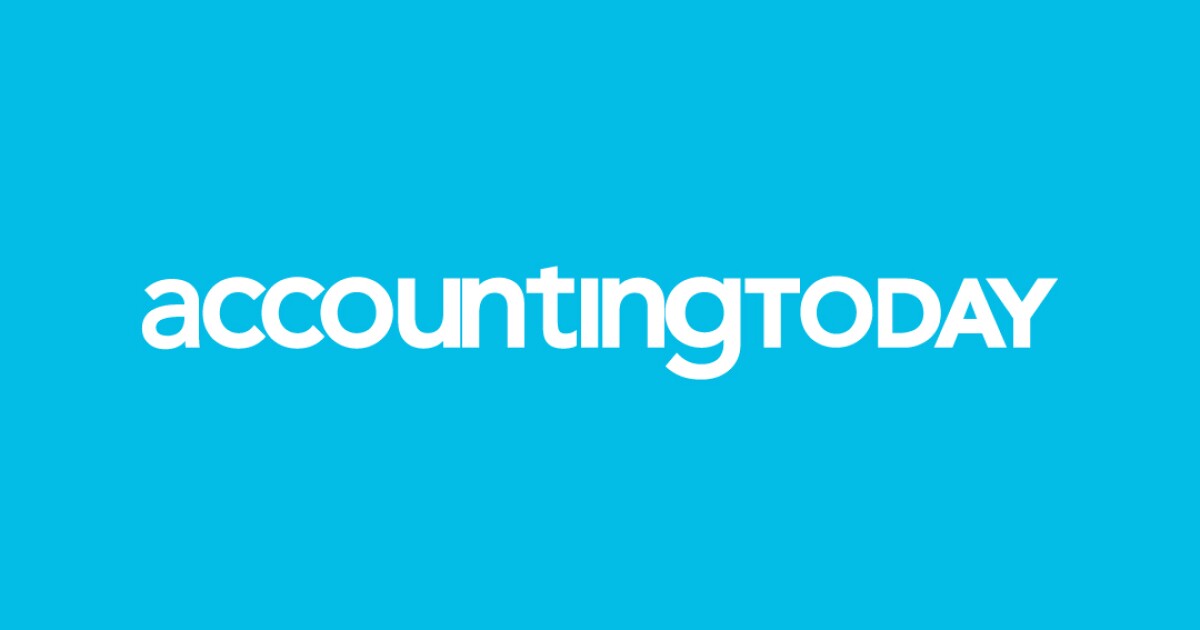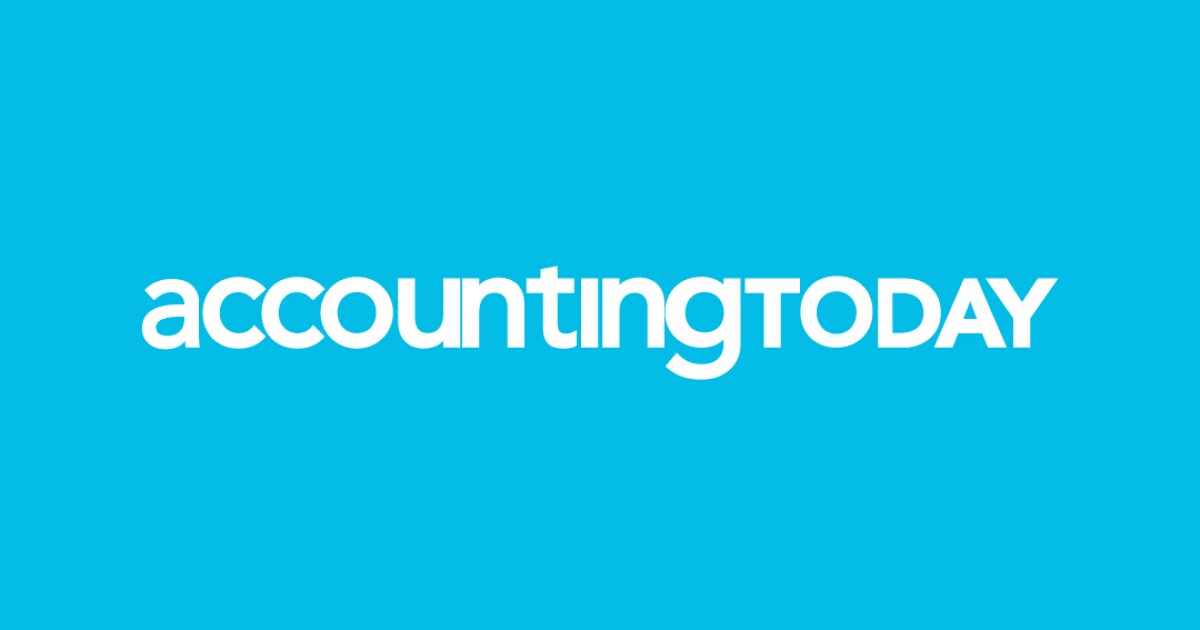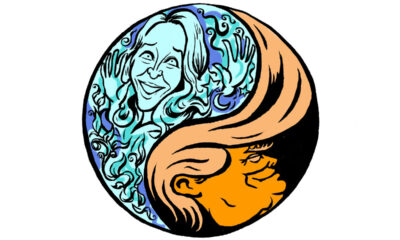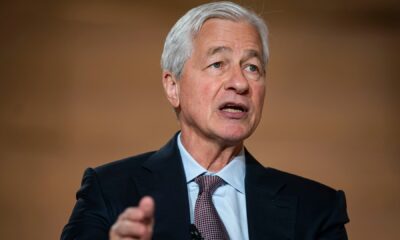Accounting
If you’re thinking of offering financial advisory services, don’t overlook estate planning
Published
2 months agoon


It’s no secret that more and more CPAs are offering financial services to their clients.
In fact, financial planning questions now have a greater emphasis on the CPA exam than ever before. I find that encouraging. But if you think true financial planning is all about investments and annual returns, think again.
Financial advisors are no longer hanging their hats on portfolio performance. They’re moving toward the holistic approach to wealth management, an approach that goes beyond financial services to account for any factor that touches a client’s financial life. The holistic approach recognizes that financial health is closely intertwined with physical, emotional, mental and social wellbeing. I’m guessing this wasn’t covered in your accounting school curriculum.
To move into this area successfully, you’ll have to do more than crunch the numbers and plug in investments. Clients and strategic partners will evaluate you based on how well you can really listen to clients and empathize with them. Those attributes are now more important than your advanced math skills, technical skills, and knowledge of the Tax Code.As Clayton Oates, founder of QA Business, wrote in the foreword of my new book
In the introduction, Seth Fineberg, founder of Accountants Forward, explained that as a CPA, you are your clients’ most trusted guide. “You are the one who has been helping them in their financial lives the longest,” he wrote. “And even if your client tells you they already have a financial planner, it’s worth reaching out to that planner and potentially collaborating with them as part of your service to ensure that your client is getting the best possible advice. That’s because every single year, you know what they owe in taxes and why.”
According to Fineberg, accountants know intimately where their clients’ spending goes and may already offer basic ways for them to save on taxes. In short, “the trust is there. The data is there. Why aren’t you helping them more?” he askedI began to ask myself the same thing as I started making deeper inroads into the accounting profession. Thanks to advances in technology and increasing affordability of a virtual family office model, you can provide your clients with access to a wide range of services. Experts can be brought in as needed to provide specialized knowledge about accounting, tax, estate planning, insurance, legal, philanthropic planning, investment and administrative matters. Best of all, the experts don’t have to be in-house on your full-time payroll. Again, as the client’s CPA and most trusted advisor, you direct the relationship and remain the central point of contact.
Estate planning to cement client relationships
When it comes to providing the family office level of care, estate planning comes top of mind. On a recent
“One thing we continue to see is that clients looking for advisors want complete holistic planning,” said Mazabel. “They tell us: ‘I don’t want to go to three or four different offices to get all of my stuff done. I want to go to one trusted source who really understands my goals and my gaps and can help me build a complete plan around that.”
Mazabel said that for many years as an advisor, his focus was on building up a client’s assets. There wasn’t much emphasis on protecting those assets or transferring them tax-efficiently to NextGen or the causes they believed in, he noted. Like Mazabel, I’ve long believed you can connect generations with estate planning. It’s a great retention tool as well as a great prospecting tool. And thanks to online estate planning tools like Trust & Will, technology streamlines the process for clients. In the past, advisors would refer clients to an estate attorney and hope they’d show up. Once there, clients would have to endure uncomfortable conversations about health care directives, powers of attorney, and death. Now they can do it from the comfort of home and have an advisor walking them through the process. By making it easier for the advisor to be involved directly in the estate planning process, Mazabel says it’s much easier to hold clients accountable for following through.
Trust & Will’s research has found that when a person comes to set up an estate plan on the platform without a financial advisor, there’s about a 25% chance they’ll go through the process and complete it. But when they come through a financial advisor, the completion rate goes up to 75%. That’s one of the many advantages of having a trusted advisor.
When you consider that 55% of Americans don’t have any estate documents and only 31% have a basic will, according to
Speaking of statistics, my good friend Michael DiJoseph, a senior strategist at Vanguard Investment Advisor Research Center, has long studied and quantified the value that a skilled advisor brings to clients vs. clients who don’t use financial advisors. Vanguard celebrated the 25th anniversary of its
According to DiJoseph, the higher the level of trust a client has in their advisor, the more likely they are to make a referral. DiJoseph’s team has taken it a step further and looked into the three main components of trust. Emotional trust was by far the most important component:
- 17% of respondents rated “functional trust” (building portfolios, doing financial planning, etc. as the single most important type of trust.
- 30% of respondents rated “ethical trust” (advisors’ interests are aligned with theirs vs. trying to sell them something) as the single most important type of trust.
- 53% of respondents rated “emotional trust” (softer skills: actively listening; asking good questions; treating clients like people, not portfolios) as the single most important type of trust.
From my standpoint, these stats are very welcoming for a profession that hangs its hat on trust. As I discuss throughout
For forward-thinking CPAs, estate planning isn’t just an add-on service; it’s a cornerstone of relationship-centered wealth management that clients increasingly expect from their most trusted advisor. Build your ROR today!
You may like

Your best senior manager just handed in her resignation. Despite competitive compensation, flexible scheduling options, and a clear partnership track, she’s leaving. Her reason? “I need a life outside of work.”
Despite significant investments in retention strategies, accounting firms continue to struggle with keeping top talent. The conventional approach of striving for
The reality is that accounting doesn’t lend itself to consistent equilibrium between work and personal life. Your teams know this. You know this. So why do we keep pursuing a framework that fundamentally conflicts with the nature of accounting?
Accounting continues to face unprecedented challenges. According to the
These challenges create a perfect storm that impacts team well-being. When we’re short-staffed, the burden falls on the remaining team members. When we’re racing against deadlines with complex regulatory changes, stress multiplies. The traditional response has been to simply work harder and longer — a strategy that’s proving increasingly unsustainable.
A perfect work-life balance is a myth. Accounting has natural rhythms and seasonal demands that make equal distribution of time impossible. When we frame the goal as “balance,” we set ourselves up for failure and create unnecessary guilt during intensive work periods.
“Work-life harmony” acknowledges that sometimes work will be the dominant priority, particularly during tax season or major client deadlines. Other times, personal life takes precedence. The key is creating intentional integration rather than forced separation between these aspects of our lives.
One firm I worked with transformed its approach by embracing this concept. Instead of pretending busy season wouldn’t be demanding, they built intentional recovery periods into their annual schedule. They created “no meeting Fridays” during non-peak times and implemented mandatory vacation periods after major deadlines. The result? Improved retention, higher client satisfaction, and increased profitability.
The business case for work-life harmony
When I talk to managing partners about work-life harmony, I often hear: “Sounds nice, but what’s the impact on our bottom line?” This is where the conversation gets interesting.
Through years of working with accounting firms, I’ve consistently seen that prioritizing professional well-being directly improves business performance. This connection between well-being and results is what I call “Fulfillment ROI.”
The research is compelling. Organizations implementing comprehensive wellness approaches see
What might this look like in your firm? Consider the economics of retention alone: Replacing a salaried professional who leaves due to burnout typically
These costs add up quickly, but there’s good news. When professionals learn to implement work-life harmony practices, they become both happier and more effective. In my workshops and leadership programs, the data shows:
- 89% of participants successfully implement time management strategies that enhance both productivity and well-being;
- 93% improve their ability to delegate effectively; and,
- 87% experience measurable reductions in workplace stress and burnout
These individual improvements directly impact your firm’s performance. As people feel more engaged, client service improves and productivity increases. Gallup’s research confirms this connection, showing that highly engaged business units achieve 23% higher profitability while fostering environments where employee well-being is 70% higher than in disengaged units.
The most skeptical managing partners often become the strongest advocates once they see the tangible improvements in both team retention and client satisfaction. When professionals find harmony between their work and personal lives, their energy, creativity, and commitment to clients naturally increase, creating a sustainable competitive advantage for the firm.
Creating harmony in your firm: Practical implementation
Ready to transform your firm’s approach? Here are five approaches that can transform your firm:
1. Implement team coverage models. Replace the outdated expectation of constant individual availability with structured team coverage systems. Consider creating client service teams with primary, secondary and tertiary contacts clearly identified. This approach ensures clients receive consistent support while allowing individual team members to fully disconnect during designated periods. The key is clear communication about how the system works and setting appropriate expectations up front
2. Design intentional seasonal workflows. Map your firm’s natural cycles and build recovery systems directly into your annual planning. Rather than pretending every week looks the same, acknowledge the rhythm of your business. Front-load client preparation during less intense periods, schedule mandatory breaks after major deadlines, and reserve slower periods for professional development and innovation.
3. Establish communication boundaries. Create clear technological guidelines that respect personal time. Try implementing a communication protocol that specifies which channels (email, messaging, phone) should be used for different urgency levels, with corresponding response time expectations. For instance, configure systems to delay non-urgent email delivery outside working hours, or establish “email-free” periods during the day to allow for focused work.
4. Integrate strategic recovery periods. Build brief renewal periods into your daily and weekly rhythms. This might include “deep work” blocks where no meetings or interruptions are permitted, implementing 10-minute breaks between all meetings, or establishing “no-meeting” days during non-peak times. The idea isn’t to work less but to work differently. Strategic pauses increase focus, creativity, and decision-making quality.
Takeaway
The firms gaining a competitive advantage today recognize that professional excellence and personal well-being reinforce each other. They’re creating sustainable high-performance cultures where intensity and recovery work in tandem.
The most successful accounting firms of the next decade will be those that recognize team wellbeing as a strategic advantage rather than a concession. Where will your firm stand?
Accounting
SALT write-off, Harvard tax, Medicaid cuts: What’s in Trump’s bill
Published
2 days agoon
May 23, 2025

House Republicans narrowly
The legislation now heads to the Senate where lawmakers are looking to make their own stamp on the bill. The core of the package — an extension of the president’s 2017 first-term tax cuts — is likely to stay, but the senators could make some changes to a slew of new tax and spending measures that touch many aspects of the economy.
Here’s a rundown of the House bill’s main provisions impacting people and businesses:
$40,000 SALT limit
The limit on
The bill also separately creates a new limit on the value of itemized deductions for those in the top 37% tax bracket that partly erodes the value of the new SALT cap.
Tips, overtime and autos
Tips and overtime pay would be exempt from income tax through 2028, the end of Trump’s second term, fulfilling — at least for four years — his
Medicaid
The bill would accelerate new Medicaid work requirements to December 2026 from 2029 in a gesture to satisfy ultraconservatives who wanted more spending cuts.
The December 2026 deadline would fall just one month after midterm elections, with Democrats eager to criticize Republicans for
Food stamps
The bill aims to save $300 billion by forcing states to pay more into the Supplemental Nutrition Assistance Program. It would also apply work requirements for longer. Beneficiaries must work through age 64, up from 54 under current law.
Interest expensing
Private equity and other heavily indebted business sectors won a major fight in the tax bill on interest expensing. The bill adds depreciation and amortization when determining the tax deductibility of a company’s debt payments. The maximum amount any company can get in such tax write-offs is calculated as a percentage of earnings. That’s why using EBITDA – which is typically bigger than EBIT — in this process would generate heftier tax deductions.
University endowment tax
Some private universities would face a
The provision would create a tiered system of taxation so that colleges and universities that meet a threshold based on the number of students would pay more. Under Trump’s 2017 tax law, some colleges with the most well-funded endowments currently pay a 1.4% tax on their net investment income. The levy would rise to as high as 21% on institutions with the largest endowments based on their student population.
The provision is a major escalation in Trump’s fight with Harvard and other elite colleges and universities, which he has sought to strong-arm into making curriculum and cultural changes that he favors. Harvard, Yale, Stanford, Princeton and MIT would face the
Private foundation tax
Private foundations also would face an
Sports teams
The bill would limit write-offs for professional football, basketball, baseball, hockey and soccer franchises that claim deductions connected to the team’s intangible assets, including copyright, patents or designs.
Electric vehicles
A popular consumer tax credit of up to $7,500 for the purchase of an electric vehicle would be fully eliminated by the end of 2026, and only manufacturers that have sold fewer than 200,000 electric vehicles by the end of this year would be eligible to receive it in 2026. Tax incentives for the purchase of commercial electric vehicles and used electric vehicles would also be repealed.
Renewable tax credits
The legislation would cut hundreds of billions of dollars in spending by
It would also hasten more stringent restrictions that would disqualify any project deemed to benefit China from receiving credits. Those limits, which some analysts have said could render the credits useless for many projects, would kick in next year.
The legislation would also extend through 2031 tax credits for the production of biofuels.
Bonus for elderly
Americans 65 and older who don’t itemize their taxes would get a $4,000 bonus added to their standard deduction through 2028. That benefit would phase out for individuals making more than $75,000 and couples making more than $150,000. It would be retroactive to the beginning of this year.
Trump had campaigned on ending taxes on Social Security benefits, but that proposal would have run afoul of a special procedure Republicans are using to push through the tax-law changes without any Democratic votes. The higher standard deduction is an alternative way of targeting a benefit to the elderly but doesn’t fully offset Social Security taxes paid by many seniors.
Targeting immigrants
Immigrants would face a new 3.5% tax on
Factory incentives
The bill does not include Trump’s call for a lower corporate tax rate for domestic producers. Instead, it allows 100% depreciation for any new “qualified production property,” like a factory, if construction begins during Trump’s term — beginning on Jan. 20 and before Jan. 1, 2029, and becomes operational before 2033. That would be a major incentive for new facilities as Trump
Child tax credit
The maximum child tax credit would rise to $2,500 from $2,000 through 2028 and then drop to $2,000 in subsequent years.
Trump Accounts
The bill would create new tax-exempt investment accounts to benefit children, dubbed Trump Accounts. An earlier version of the bill called them
Pass-through deduction
Owners of pass-through businesses would be allowed to exclude 23% of their business income when calculating their taxes, a 3-percentage-point increase from the current rate. The increase is a win for pass-through firms — partnerships, sole proprietorships and S corporations — which make up the vast majority of businesses in the US.
Research and development
The bill would temporarily reinstate a tax deduction for research and development, a top priority for manufacturers and the tech industry. The deduction will last through the end of 2029.
Oil, gas and coal
The bill would raise billions by mandating the Interior Department hold at least 30 oil and gas lease sales over 15 years in the Gulf of Mexico, which Trump ordered to be renamed to the Gulf of America. It would withdraw Biden-era restrictions on development in Alaska’s Arctic National Wildlife Refuge. The measure would also mandate at least six offshore lease sales in Alaska’s Cook Inlet region over six years. The legislation would also require Interior to offer at least four million acres of coal resources for lease in the West within 90 days of enactment.
Radio spectrum
The legislation would restore the Federal Communications Commission’s ability for the next decade to
New spending
The bill would allocate $150 billion for the military and $175 billion for immigration and border security.
Accounting
Boomer’s Blueprint: Leveraging assets to grow: A guide for firm leaders
Published
2 days agoon
May 23, 2025
Growth in the accounting profession isn’t just about adding more clients or staff; it’s about thinking differently. As market demands shift and technology reshapes our work, firms that want to lead the pack must learn to grow smarter, not just bigger.
One powerful way to do that is to leverage assets. Inspired by the Exponential Organizations model, this strategy allows firms to scale rapidly, control overhead, and expand their impact without increasing what they own. At a time when efficiency and agility are competitive advantages, understanding how to make the most of resources you don’t own could be the difference between stagnation and strategic growth.
What are leveraged assets?
Leveraged assets refer to resources a business uses but doesn’t own. Instead of holding physical or digital assets on its balance sheet, a firm can rent, lease, borrow or access these assets through innovative arrangements. Examples of leveraged assets include:
- Physical assets. Accessing office spaces, IT infrastructure or shared client meeting rooms on demand.
- Digital assets. Cloud-based software for tax preparation, client relationship management systems, or collaborative work platforms like Microsoft Teams or Asana.
Big companies like Uber employ this strategy, building scalable businesses by accessing underutilized physical assets rather than owning them.
Accounting firms traditionally rely on owning resources, from office buildings to proprietary software systems. However, embracing a leveraged model can bring several benefits, including:
1. Cost optimization. By leasing or renting resources, firms can convert fixed costs into variable costs, reducing financial risk and improving cash flow.
2. Scalability. Leveraged assets help firms scale operations quickly to meet demand during busy seasons without long-term commitments.
3. Focus on core competencies. Outsourcing noncore functions like IT infrastructure or HR lets team members concentrate on delivering high-value advisory and consulting services.
4. Flexibility and resilience. Accessing on-demand resources gives firms the agility to adapt to market changes or technological advancements.
Applying leveraged assets in your firm
Here are four ways your firm can reduce costs, improve efficiency, and expand capabilities without increasing ownership.
1. Digital transformation. Start by embracing digital tools that remove the limitations of traditional infrastructure. Migrating to cloud-based accounting platforms like Xero or QuickBooks Online improves accessibility for your team and clients, and eliminates the ongoing costs of server maintenance and upgrades.
Layer in AI-driven tools to automate routine processes like document collections, data aggregation, tax calculations, and client communications. This frees up your team to focus on high-value advisory work.
2. Shared physical resources. Rethinking your physical footprint can also drive efficiency. Rather than investing in permanent office space in every market, consider co-working or shared spaces for occasional client meetings to create a more flexible and cost-effective approach.
Likewise, leasing equipment like high-speed scanners and printers gives you access to the latest technology without the burden of ownership, maintenance or depreciation.
3. Platform ecosystems. Tapping into established software ecosystems allows firms to deliver better service without building everything in-house. Platforms like Intuit ProConnect, Wolters Kluwer and Thomson Reuters offer integrated tools tailored to tax and audit workflows.
Add-on solutions like TaxCaddy and SafeSend enhance the client experience by streamlining document exchange, electronic signatures, and payment collection while keeping your core systems tightly connected.
4. Outsourced expertise. Not every capability needs to live within your four walls. Bring in outside consultants for specialized services like cybersecurity reviews and strategic planning. This lets your firm offer premium expertise without hiring full-time staff. This on-demand access to deep knowledge ensures you stay competitive and relevant, even as client needs evolve.
A leveraged assets strategy
Follow these steps to successfully integrate leveraged assets into your firm.
1. Audit current resources. Identify underutilized assets within the firm and assess opportunities for outsourcing or sharing.
2. Explore digital solutions. Research tools and platforms that align with your firm’s “Massive Transformative Purpose.”
3. Validate the market. Ensure sufficient demand for the services or solutions you plan to scale.
4. Build partnerships. Establish agreements with third-party providers for seamless access to assets.
5. Measure performance. Track the effectiveness of leveraged assets using metrics such as cost savings, client satisfaction, and revenue growth.
Leveraging assets offers several advantages, but it’s important to consider potential downsides. For example, overreliance on gig economy workers for seasonal tax help may impact team culture or service quality. Make sure your growth strategies align with ethical practices and long-term client relationships.
Leveraging assets isn’t just a tactic for tech startups; it’s a transformative strategy your firm can adopt to unlock exponential growth. By strategically accessing physical and digital resources, you can enhance agility, reduce costs, and better serve clients in an increasingly complex financial landscape. The path to becoming an Exponential Organization starts with a single step: rethinking ownership and optimizing leverage.
Think — plan — grow!

How to pay college tuition bills with your 529 plan

AI drives growth for a few Chinese companies. Analysts share picks

How to Implement Internal Controls to Prevent Business Fraud

New 2023 K-1 instructions stir the CAMT pot for partnerships and corporations

The Essential Practice of Bank and Credit Card Statement Reconciliation

Are American progressives making themselves sad?
Trending
-

 Economics1 week ago
Economics1 week agoThe low-end consumer is about to feel the pinch as Trump restarts student loan collections
-

 Economics1 week ago
Economics1 week agoViolent crime is falling rapidly across America
-

 Economics1 week ago
Economics1 week agoAre American Catholics ready for an American pope?
-

 Economics1 week ago
Economics1 week agoEmbrace the woo woo
-

 Blog Post1 week ago
Blog Post1 week agoBest Practices to Auditing Your Bookkeeping Records
-

 Economics1 week ago
Economics1 week agoConsumer sentiment falls in May as Americans’ inflation expectations jump after tariffs
-

 Economics7 days ago
Economics7 days agoThe MAGA revolution threatens America’s most innovative place
-

 Economics1 week ago
Economics1 week agoJPMorgan Chase CEO Jamie Dimon says recession is still on the table for U.S.
